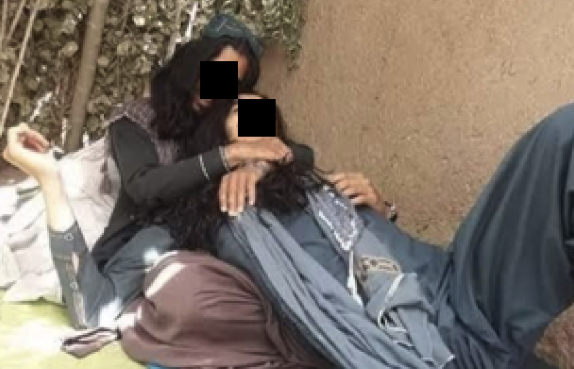Taliban sexually exploit young boys: Report with Photos and Videos
During Taliban parties, he said the boys are given intoxicants and made to perform traditional women’s dances while wearing feminine clothing, makeup, and wigs.
There are growing evidences that proof that Taliban has been sexually exploiting young boys and using them as child soldiers, according to a detailed report by Washington Examiner.
The authors of the report are Lark Escobar who is a human security specialist, educator, and gender adviser who served in Afghanistan in 2010 and 2011, while Beth Bailey is a freelance writer from the Detroit area and a former civilian intelligence analyst.
The Milli Chronicle has republished the entire report verbatim as given below.
Since the Taliban took control of Afghanistan in August 2021, Afghan children and teenagers have increasingly become the victims of starvation, child marriage, organ trafficking, and natural disasters. Growing evidence also indicates the Taliban are sexually exploiting young boys or using them as child soldiers.
According to a special immigrant visa applicant living in an Afghan city, the Taliban bring boys as young as 10 to offices and checkpoints to work as soldiers and bodyguards. At one checkpoint, the applicant said he was searched by a small boy who “was not able to hold an AK-47 properly.”
The applicant also alleged the Taliban are using their young charges for bacha bazi — or pedophilic “boy play”.
During Taliban parties, he said the boys are given intoxicants and made to perform traditional women’s dances while wearing feminine clothing, makeup, and wigs. He claimed they are also forced to gratify Taliban members sexually.


Bacha bazi has a long history in Pashtun and Tajik cultures and is practiced throughout Central Asia, although it is antithetical to Islam. Rather than being considered an act of homosexuality, engaging in sexual acts with a dancing boy is considered an expression of masculinity that also preserves the dignity of women. Some of the young boys, known as bacha be reesh, are drawn into the practice for the money they can earn. Others may be sold or abducted and then forced into the practice. Dancing boys may be trafficked throughout the country until they become too masculine for practitioners’ appetites. At this point, sources indicate they are discarded or even killed.
During the Taliban’s former regime, bacha bazi was punishable by death. The only published evidence suggesting Taliban acceptance of bacha bazi comes from 2016 reporting of Taliban members using dancing boys to infiltrate Afghan police headquarters, where they drugged and killed government employees. One Taliban commander was accused of drugging and raping a minor boy in December 2021, which may have been affiliated with the practice. He currently holds the role of police media chief.
The Taliban have not addressed their policy toward bacha bazi since taking power in Afghanistan. Recent photographic and video evidence suggests, however, that members of the Taliban have engaged in the practice. As with the United Nations’s recent report on human rights violations occurring in Afghanistan, this evidence puts into question the amount of control that Taliban leaders maintain over subordinates.
The most concrete evidence comes from a video posted on June 6, in which a staggering and diminutive male child is manipulated around a room before performing a sexually provocative dance for the gun-wielding men surrounding him. As the boy moves his slender frame, the men in the room cheer, clap, share cigarettes by mouth, and caress the boy’s body. Kabul Magazine, which published a shortened version of the video on Facebook on Sept. 24, 2021, alleges the men are members of the Taliban.



Leslie Merriman, a volunteer supporting SIV applicants, explained Taliban commanders might have up to five boys whom they could use for dancing or sex, as servants, or as administrative aides.



According to a female special immigrant visa applicant, in one northern Afghan province, “hundreds of young boys” have been taken “from the streets, shops, and from their work [or] even from their homes”. Some are being conscripted to fight with the Taliban. Others are being forced to become dancing boys. She said the families of the kidnapped boys are “hiding [the] issue because this is for them a big shame”.
One member of the Afghan diaspora said a Taliban commander abducted his friend’s nephew, who is Tajik, from a northern Afghan province shortly after August 2021. The boy’s father suspects his son is being used for bacha bazi. He is devastated but has no means to extricate his son, who is between 15 and 16 years old, from the hands of his captors.
Many in northern Afghanistan often come from minority, non-Pashtun ethnic groups. Some of these groups are actively involved in resistance against the Taliban. By kidnapping children from ethnic minorities, the Taliban may be conducting a slow-moving genocide, allowing the boys to become victims of the Taliban’s war against the National Resistance Front or abusing and killing them when they reach adulthood.
The Taliban’s engagement in bacha bazi also has implications for Afghan women, whose human rights are already curtailed severely under Taliban rule. The performative displays associated with the dances indicate how masculine men should treat women. This cements the Taliban’s relegation of Afghan women to the role of mere sexual objects. Furthermore, these allegations indicate that the Taliban are flouting international laws. Recruiting children for use as soldiers is a war crime that violates international humanitarian law. Sexually abusing children is a violation of Articles 19 and 34 of the U.N. Convention on the Rights of the Child, which was ratified by the Afghan government in 1994.
The innocence of Afghan children has been trampled during decades of endless conflict. The international community must move to ascertain the veracity of these claims and protect Afghan youths’ right to a childhood free of forced conscription and sexual abuse.



